Recommended Reading
We love to read. And we love to always have a book or two on hand. This was true before we left on this trip (which is why we had to clear out approx 1200 books) and it’s true now (we try to only carry one book at a time these days, but sometimes we’ve actually found ourselves with three each that we’re lugging around).
Over the past few years, we’ve read so many great books about bike touring, traveling, simplifying, making it happen, that we finally decided it was time to share our favorites. If you’re looking for some new reading material, check these out… (Note: Each link provided is an affiliate link. If you purchase a book through one of these links, you’ll also be supporting our journey.)
Miles from Nowhere: A Round the World Bicycle Adventure
by Barbara Savage
This is the quintessential bike touring book for us. Several years ago, Russ found a copy in our favorite used bookstore – and it instantly made him a bike tourist at heart. He emerged from the back of the apartment with a smile and said “we’re going to go bike touring!”
Written in the 1970s, Miles from Nowhere was one of the early great bike touring travelogues. In writing this book, Barbara Savage made bike touring seem easy and accessible, even an enormous feat such as riding around the world. She was mostly a non-cyclist, and before embarking on their round-the-world trip, the most she had ridden at one time was only 15 miles. You walk away from the book realizing that, if she could do it, anyone can do it. Miles from Nowhere is a great inspirational read for anyone who wants to do a bike tour, and we highly recommend it. Unfortunately, there’s a tragic epilogue to the book, because Barbara Savage was killed in a car accident near her house in Santa Barbara only a few weeks before it was published.
Vagabonding: An Uncommon Guide to the Art of Long-Term World Travel
by Rolf Potts
Before we rolled into Austin, Texas, we had never heard of this book, or the amazing man that authored it. One of our hosts in town had a copy and shared it with us, and Russ and I each gobbled it up in just a handful of hours, putting it down with a sigh and a feeling that everything he had written exactly matched our own travel experiences and what we had learned ourselves about roaming the world.
Rolf Potts began traveling around the world many years ago, in a meandering style that left many decisions up to serendipity. Vagabonding is his “how-to” – but don’t expect to open it and find a check-list of things to do to become an intrepid world traveler. Instead it’s a meditation on what long-term travel actually feels like, how he learned to stop forcing things to happen, and his tips on how you can escape “reality” to head off on your adventure (here’s a hint: the only thing that’s truly stopping you from going is you). There are great travel stories to inspire you, and resources to help you get out the door. But, more than anything, Vagabonding is a spot-on account of the experience of non-destination-based travel.
Smalltopia: A Practical Guide to Working for Yourself
by Tammy Stroebel
Our good friend Tammy just released her second e-book, and we are thrilled for her, and excited to post about it. We contributed a “case study” essay for the e-book, but we really want you to pick up a copy of Smalltopia because it’s an incredible compilation of tips, know-how, inspiration and support to help you build your own small business (which just might create the opportunity for you to go vagabonding too!).
In January, Tammy quit her job and began working for herself, building up a small business based, in part, on her writing. The ensuing freedom inspired her to help others achieve the same. If you’ve ever sat under a fluorescent light in an office, logging your required eight hours a day, and wished that you could just find a way to escape, you really want to read this book. Smalltopia is both practical and motivational, helping you think about what you really want to do and pushing you to start achieving your goals. And this book is huge. It’s not some thin bit of fluff, but a substantial guide that helps you examine what you’re not doing and advises you how to make a change for yourself.
Cruising in Seraffyn
by Lin & Larry Pardey
Cruising in Seraffyn is not about bike touring. Rather, it’s about sailing – or, more specifically, it’s about cruising, which is sort of like bike touring on a boat. It was recommended to us by a friend because of the wisdom that the Pardeys recount at the beginning of the book. Their world tour on a sailboat was one of the first such journeys to be publicized, and their narrative account of how they made it work was one of the first such books to be published. And the lessons they share still hold true today.
The Pardeys have a saying that we like to remember and relay to others: “Go small. Go simple. Go now.” Or, in other words, stop worrying about all the nitty-gritty, the timing will never be 100% perfect, just jump in and go for it and make it work. They talk about how the most important part of going on a long rambling journey is just making the decision to go – and that once you’ve decided, everything else is just details, and it will all come together. For us, reading Cruising in Seraffyn was like sitting down with a venerable old sage who’s accomplished what you want to do – we walked away realizing that there’s no magic secret, you just have to be sure in your decision and run with it. The Pardeys also write about how they’ve managed to fund their years of travels so that they can just continue sailing around the world.
Trout Bum
by John Gierach
If Edward Abbey and Mark Twain were fisherman, they would collectively write this book. Trout Bum is funny and off-beat and John Gierach pokes fun at the foibles of human nature, through the metaphor of fly fishing. Russ picked up a copy in Asheville, read through it in just a few days, and admitted (somewhat embarrased) that it was his favorite book that he’s read while on the road.
Trout Bum is one of John Gierach’s first books, and the quintessential example of his writing. In it, he waxes philosophical about catching trout and the absurdity of belly boats, all with a dry wit that manages to capture the essence of fly fishing, but also human nature. As much as he appreciates the latest fishing technology available, he most appreciates the simplicity of fly fishing, and pokes fun at the industry trying to sell you the “latest and greatest” crap. Even if you’re not a fishing fanatic, you’ll still appreciate the story-telling in this book.
Desert Solitaire
by Edward Abbey
After hearing the name “Edward Abbey” pop up again and again, Russ decided to pick up a copy of Desert Solitaire. Edward Abbey is an environmentalist, but not of the the typical tree-lover stripe. Imagine if Thoreau drank beer, smoked cigarettes, wore a cowboy hat, and wasn’t afraid to swear… you’d have Edward Abbey.
Desert Solitaire is a collection of essays, some of which cover his time as a seasonal park ranger in Utah, and some of which are soliloquies about man’s antagonistic relationship with nature. In one of his essays about Yosemite, he advocates the banning of cars into the park, and says that people should have to take a train, walk or ride a bike into the valley. Edward Abbey is full of ironies and contradictions – he wants to keep the parks pristine, but also writes about tossing beer cans out the window. His writing is full of sardonic humor, and some of his ideas are a precursor to Fight Club and E.L.F. If you like nature writing, with a jab of hot sauce in your eye, pick up a copy of Desert Solitaire.
The Pine Island Paradox: Making Connections in a Disconnected World
by Kathleen Dean Moore
This book stands as one of Laura’s most favorite titles. In fact, it was near and dear enough that it’s one of my few possessions that got stashed away in a box. Pine Island Paradox is a collection of philosophical essays about nature, and our relationship with nature. They are deep and thoughtful and touching and can transport you away from your to-do lists.
Kathleen Dean Moore looks at the fragile intersection between the natural world and our developed, industrial world – and, through her writing, compels you to take a look as well, without forcing any opinions about what “should” be done. She writes about razor clams, trees, dancing, her family – and Pine Island, a very small primitive island in Alaska where she vacations. I read Pine Island Paradox for the first time in the middle of Southern California, and it was exactly what I needed to stop focusing on the traffic and remember how calm and restorative the forest is.
How to Shit in the Woods: An Environmentally Sound Approach to a Lost Art
by Kathleen Meyer
While killing time in a bookstore in Alpine, Texas, Russ spotted this book with a laugh. He instantly took a photo and posted it to Facebook (which elicited a rapid response from others who had read and loved it), and then took the plunge and took the book with him.
How to Shit in the Woods is the definitive field guide to doing your business in the woods. It’s a mix of funny anecdotes and practical advice. On a serious note, it covers the topics of water quality in the outdoors and what can be done to keep our rivers and streams pristine. How to Shit in the Woods is a tiny book and a quick read, it will make you laugh and re-consider where you squat, and in a pinch it can be used as toilet paper (which you should then pack out with you).
Tags In
8 Comments
Leave a Reply
This site uses Akismet to reduce spam. Learn how your comment data is processed.
Subscribe
Patreon
Join Team Supple on Patreon
PayPal

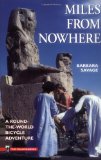
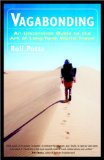

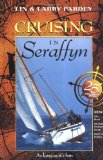
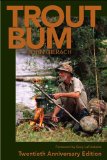
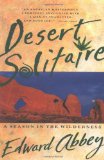
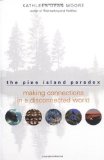

Sort of misleading to say Barbara Savage “died in a car accident.” Sadly, she was killed when she was hit by a car while riding her bike.
Edward Abbey also started Earth First!, of which E.L.F. is a “descendant.”
I read “Seraffyn” 20+(?) years ago and it was the first thing I thought of when the two of you announced your plans to do this bike tour! Glad to see that the book made your list.
Hey you two. Thanks for sharing this list. I just remembered the book I read about a bike tour from California to Vietnam that I told you about. It’s “Catfish and Mandala: A Two-Wheeled Voyage Through the Landscape and Memory of Vietnam” by Andrew Pham.
Hope your ride continues well!
Hi Guys,
A couple more books on cycling that I enjoyed and you MIGHT not have heard of (but probably have)….
Benge, Polly – Tea for Two… with no cups, TravellersEye, 2000
Moore, Tim – French Revolutions
check out this page: http://www.crazyguyonabike.com/doc/page/?o=RrzKj&page_id=55516&v=28
Cheers,
Tim Leckie
Laura and Russ, another inspiring book worth reading—long out of print, yet hugely inspirational—is “Vagabonding in Europe and North Africa” by Ed Buryn. I carried Buryn’s book with me during my first long hitchhiking trips in the early 1970s. Buryn’s Vagabonding is not a guide book to pretty sites but rather contains lots of mind blowing writing and kooky photos that celebrate vulnerability, embrace serendipity, encourage the potential joys of heading into the unknown. The magic of Buryn’s vagabonding vision is echoed in Potts’ more recently published book also called Vagabonding. And I suppose that both books echo the lessons and sense of humor of wise vagabonds going back thousands of years. Best wishes, Michael, writing from Long Beach, California.
I just stumbled upon your blog, am really enjoying my read through your posts. Have you read any of Peter Jenkins books? In the 1970s he set out to rediscover himself and his country by walking across america. As a teenager I stumbled upon a few of his works in my father’s bookshelf, and have never forgotten them.
One of my favorite bike touring authors is Josie Dew. Her book The Wind in my Wheels is my favorite and Travels In A Strange State. Her writing is easy to read and hilarious! Check her out!